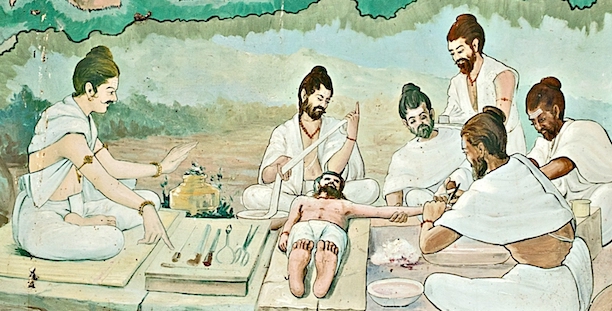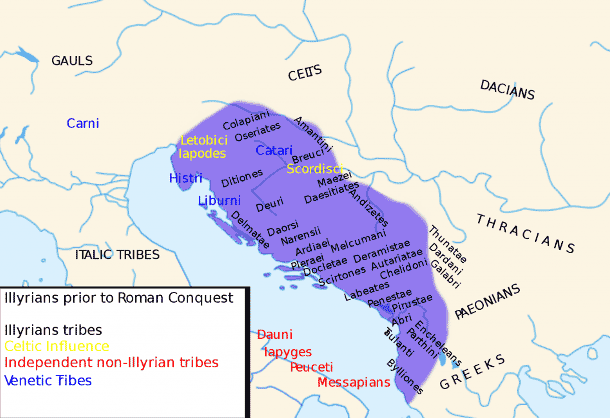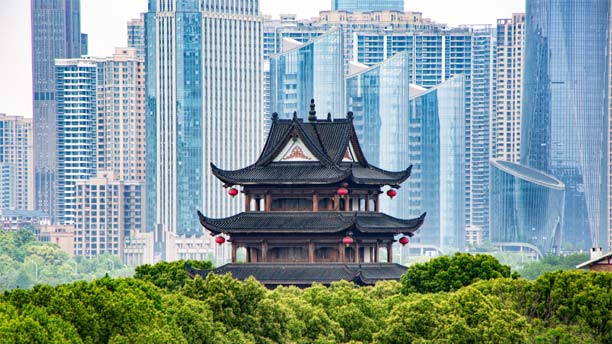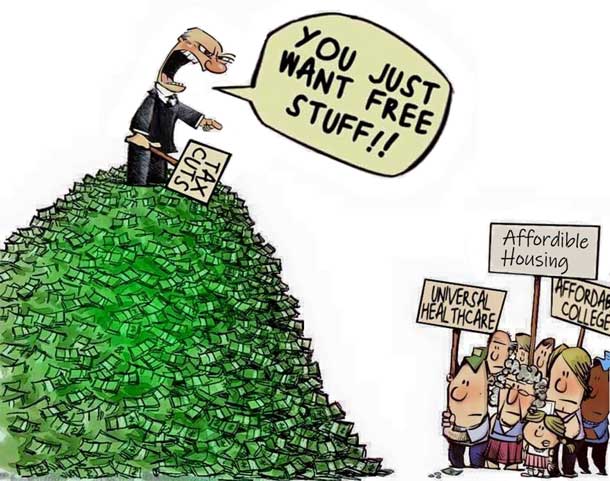Pages: << 1 ... 21 22 23 24 25 26 27 28 29 30 31 ... 1278 >>
What’s Wrong With Nuclear Weaponry and Energy
By David Swanson, World BEYOND War

Nuclear Weaponry
“Deterrence”
Pakistan and India obtained nuclear weapons in 1998 and went to war in 1999. The United States and Russia have fought numerous wars against other nations, and in Ukraine against each other (albeit with mainly Ukrainian troops on one side), and often threatened to use nuclear weapons. Russia has threatened to use nuclear weapons in Ukraine. The United States has threatened to use them in North Korea and Iran. None of these threats seem related to deterrence, just as demands to nuke something in popular speech have nothing to do with deterrence. The fact that World War III has not yet engulfed the world is not evidence of nuclear deterrence, the very conception of which is arguably nonsensical. Deterrence depends on making yourself believe that someone else believes that you might do exactly what you are supposedly trying to avoid.
On Slavery and Taxation
Paul Craig Roberts

When Trump speaks of abolishing the income tax and
substituting tariffs, he is speaking of the restoration
of American freedom which was abolished in 1913.
The South is blamed for slavery. One encounters this false association, the product of decades of demonization of the South, everywhere, even in books about the assassination of President McKinley in 1901 in Buffalo, New York by a Polish-American, Leon Czolgosz, who was born in Detroit.
Nothing in McKinley’s presidency or in Czolgosz’s life has anything to do with the South or slavery. Yet the author of the book, Eric Rauchway, manages to use the fact that northern whites wanted to lynch Czolgosz, a white man, to pull the South into the story. “White men of the South practiced lynching to terrify black men into submission,” and blacks fled the South because of “the growing number of blacks lynched in the slow-burning race war of the late-nineteenth century South.” These are blanket and unsupported statements.
In fact, lynching was a form of community justice. There are instances of blacks lynching blacks and instances of lynchings far outside the South. On the Western frontier lynching was the punishment for horse thieves. As the author is described as a teacher at the University of California, Davis, and the book was published in 2003, perhaps the explanation is the author is protecting himself against the rising power of the university left and the doctrine of “aversive racism.”
I don’t mean to single out this particular book. It just happens to be lying at hand. The point is that no matter how remote a book’s topic is from the South, such as President McKinley’s assassination, writers establish their moral credentials with potshots at the South.
From Bush to Trump: The American Descent into Orwellian Dystopia
Robert David

Presidencies Through the Lenses of Orwell, Huxley, Bradbury, and Mae Brussell
George Orwell's Animal Farm and 1984, Ray Bradbury's Fahrenheit 451, and Aldous Huxley's Brave New World together highlight the loss of freedom, authoritarian rule, and manipulation of truth. These tales, penned during the middle of the 20th century, are dire warnings of what is to come for those who read them. Mae Brussell's critiques, often overlooked, remain as relevant today as they were when she first voiced them. They provide a unique perspective on the erosion of democracy in the United States.
Start a Lasting Peace in Ukraine Now
By David Swanson World BEYOND War

We are heartened to learn that the U.S. government is communicating with the Russian government, and are only sorry that such a basic step seemingly required a presidential election, when a glance at the Doomsday Clock ought to have been sufficient.
Having set the bar so low that speaking at all seems a tremendous accomplishment, we must nonetheless insist that the proper things be said, and be heard, and that they be followed with verifiable actions. The popular demand in Western media that Ukraine be listened to in, and be part of, any negotiations should be applauded, but radically expanded. The president of Ukraine is severely violating the rights of the people of Ukraine to freedom of speech, freedom of assembly, conscientious objection, and the right to form political parties that represent their interests. He is preventing elections through the imposition of martial law. The nation of Ukraine is deeply divided in opinions, and those divisions often correspond with geographic locations. A majority of Ukrainians, according to polls — and despite crackdowns on speech that opposes warmaking — say they are open to peace negotiations that remove territory from Ukraine, something the President of Ukraine sides with a minority in opposing in the name of “democracy.” More Ukrainian voices than one should be at the negotiating table.
Google and Bing Censorship of Alternative Medicine: Big Pharma’s Influence on Health Information & Search Results
Fred Gransville

Currently, the primary keepers of information are search engines like Google and Bing. These platforms are the first contact for billions of people worldwide regarding their health queries. But are the search engines unbiased? There is a growing suspicion that these information platforms are actively censoring and suppressing alternative medicine, herbal remedies, and traditional therapies in favor of promoting Big Pharma's profit-driven goals.
This article is not a substitute for medical advice.
This practice raises serious ethical questions regarding the role of search engines in shaping public health narratives and the financial conflicts of interest that may be driving these decisions. Censorship manifests in many forms, including delisting, downlisting, and backpaging alternative treatments while prioritizing pharmaceutical-based solutions.
Who Will Rule? An Elected President or an Unaccountable Judiciary?
Paul Craig Roberts

LAWFARE: Obama-appointed judge John J. McConnell, Jr. threatened Trump and his team with arrest if they don't restore every last dime of funding for private NGOs.
The Democrats are using the judiciary to cover up their corrupt operations and theft of taxpayers’ money.
If you will notice, the slew of judges countermanding Trump’s executive orders are themselves issuing executive orders, and they are doing so with no reference to law. Instead, they are ruling that Trump’s executive orders are harming someone, including illegal immigrant-invaders who are not US citizens. This is outrageous. Harm is a subjective standard. Moreover, the judges are overlooking the harm that their rulings do.
What can Trump do? Like Andrew Jackson, he could ignore the judges. He could order the federal marshall’s, who report to the president and not to the judiciary, to cease delivering the judges’ edicts and to stop providing any service to the judges other than life protection.
The Albanians: Land, People, and Language
Dr. Vladislav B. Sotirovic

The ethnic Albanians entered Balkan history in 1043 when they came from East Sicily and settled in present-day Central Albania by the Byzantine authorities.¹ Their ethnic origin remains still very vague and no historical consensus has been reached on the subject until now. The Albanians became aware of the importance of being a “nation” late, compared with other Balkan ethnicities. This handicap, however, the Albanian nationalist leaders tried to turn into an advantage. Since a number of European historians offered a variety of (hypo)theses on the subject, they could adopt those that best suited their political and nationalistic purposes.
The Albanian case is very similar to the problems that the Croat 19th century nationalists faced with the acute lack of relevant ingredients for forging the nation, what they needed: land, people, and language. Let's now take into consideration each of these items separately.
‘Quantitative Easing with Chinese Characteristics’: How to Fund an Economic Miracle
by Ellen Brown

China went from one of the poorest countries in the world to global economic powerhouse in a mere four decades. Currently featured in the news is DeepSeek, the free, open source A.I. built by innovative Chinese entrepreneurs which just pricked the massive U.S. A.I. bubble.
Even more impressive, however, is the infrastructure China has built, including 26,000 miles of high speed rail, the world’s largest hydroelectric power station, the longest sea-crossing bridge in the world, 100,000 miles of expressway, the world’s first commercial magnetic levitation train, the world’s largest urban metro network, seven of the world’s 10 busiest ports, and solar and wind power generation accounting for over 35% of global renewable energy capacity. Topping the list is the Belt and Road Initiative, an infrastructure development program involving 140 countries, through which China has invested in ports, railways, highways and energy projects worldwide.
All that takes money. Where did it come from? Numerous funding sources are named in mainstream references, but the one explored here is a rarely mentioned form of quantitative easing — the central bank just “prints the money.” (That’s the term often used, though printing presses aren’t necessarily involved.)
The U.S. Presidency and Congress as Tools for Dynasty Building and Wealth Accumulation
Cathy Smith

Throughout the decades, the highest leaders and congressmen in the United States office have acted as a public-money financial-pig-trough through which politicians and their relatives increase their personal wealth. This trend has made the inequality gap wider, as well as done tremendous damage to the country’s economy and worldwide reputation. Recent presidents and congressmen have made measurable amounts of wealth during and after their term using strategic political offices. This paper seeks to uncover how power is used to create multi-generational family wealth, how it has deepened wealth inequality, and how the phenomenon endangers the democracy.
The Financial Trajectory of Recent U.S. Presidents
The wealth patterns associated with the financial lives of modern-day U.S. presidents offer an insightful case on how those in political office utilize their positions for financial gains. For instance, Barack Obama had net-worth of $1.3 million before taking office in 2008, but by 2023, he was worth approximately $70 million, using his book publishing, speeches, and deals with media firms like Netflix and Spotify to make the bulk of his money. In comparison, Donald Trump had a net-worth of $3.1 billion when assumed office in 2016, and although this has fallen to $2.5 billion in 2023, he continues to enjoy substantial wealth, driven predominantly by real estate and other investments that he made during and after his presidency.
Free Speech is Not Free and Neither is Gaza
By Mark Aurelius

"Regardless, hatred is encouraged against non-protected classes, such as people labeled enemies, like Arabs, Palestinians, supporters of certain political clashes, etc."
The news industry won again with Donald Trump becoming President. Regardless of whether you love him, hate him, or are puzzled, he gins up a hell of a lot of controversy and speculation. So thence volumes, tomes, twitter tweets of curiosity, opinion, theory and verbiage gusher to flash flood and circulate.
Only a few weeks into his second term, and he has aroused far more than curiosity, and his usual norm of adoration versus hatred. The world kitchen is fuming like a scullery broiling with consternation and incredulity. What kind of fast paced reality cooking show is this?
Like a bull in a China shop he breaks news in faltering and awkward ways. Some say great art provokes strong emotions. Unfortunately, outcomes to this madcap madness are far more serious and ominous than afternoon museum strolls and musing. There are deep and ugly forces undergirding this play’s staging.



